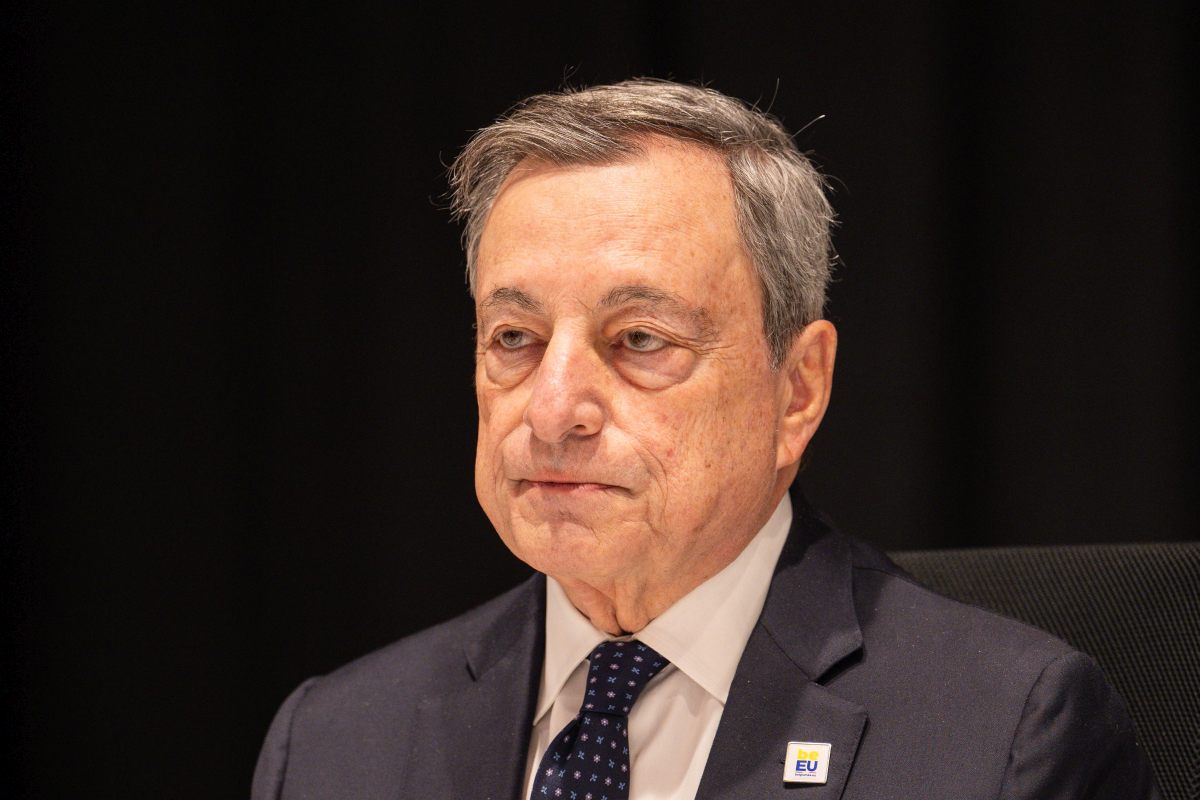ROME (ITALPRESS) – On defense, “it is necessary to define a higher-level chain of command that coordinates armies heterogeneous in language, methods and armaments and that is able to detach itself from national priorities by operating as a continental defense system.” So said former prime minister and former ECB President Mario Draghi at a Senate hearing regarding the report on the future of European competitiveness that he drafted. “From the industrial-organizational point of view, this means fostering European industrial synergies by focusing developments on common military platforms (aircraft, ships, land-based assets, satellites…) that allow interoperability, which we do not have today or only to a limited extent, and reduce dispersion and the current overlaps in member states’ productions,” he added.
“The common defense of Europe therefore becomes a necessary step to make the best use of the technologies that will have to ensure our security. Even our assessment of defense investment, today based on the calculation of military spending alone, will have to be modified to include the investments on digital, space and Cyber security that will become necessary for the defense of the future. For all of this, we need to start on a path that will take us beyond national models to thinking on a continental level.” “The narrow budget spaces will not allow some countries significant deficit expansions, nor are contractions in social health spending conceivable: it would not only be a political mistake, but above all a denial of that solidarity that is part of the European identity,” he stressed, “That identity we want to protect by defending ourselves from the threat of autocracy. Recourse to common debt is the only way.”
“Our security is today challenged by the change in the foreign policy of our major ally with respect to Russia, which with its invasion of Ukraine has proven to be a real threat to the European Union. Europe is now more alone in international forums as happened recently at the United Nations and is asking: who will defend its borders in case of external aggression? And by what means?” This was stated by former prime minister and former ECB President Mario Draghi at a Senate hearing regarding the report on the future of European competitiveness that he prepared.
“We are the second or third continent by military spending and certainly more than Russia. But European countries eventually buy most of their military platforms from the United States: between 2020 and 2024 the United States provided 65 percent of the import of defense systems of European NATO member states. In the same period, Italy imported about 30 percent of its defense equipment from the United States, Draghi said. “If Europe decided to create its own defense and increase its investment by overcoming the current fractionalization instead of relying so heavily on imports it would have a greater industrial return and a more balanced relationship with its Atlantic ally on the economic front as well,” he added. “This major transformation is actually necessary not only because of the geopolitical complexities we are witnessing, but also because of the very rapid evolution of technology that has turned the concepts of defense and warfare upside down.
“Europe would still have had to fight the stagnation of its economy and assume greater responsibility for its own defense in the face of a long-announced reduced U.S. commitment. But the new administration’s directions have dramatically reduced the time available,” he added.
On tariffs, the former premier said, “For decades, the European Union has guaranteed its citizens peace, prosperity, solidarity, and together with its American ally, security, sovereignty and independence. These are the constituent values of the European Union. But these values are being challenged today: our prosperity, already threatened by low growth for many years, was based on an order of trade and international relations now disrupted by the protectionist policies of our largest partner. The duties, tariffs and other trade policies that have been announced will have a strong impact on Italian and European businesses.”
“In Europe between September and February, the wholesale price of natural gas increased by an average of more than 40 percent with peaks of more than 65 percent before settling at +15 percent in the last week,” Draghi continued. “Wholesale electricity prices have also increased across the board in several European countries and continue to be 2-3 times higher than prices in the United States. This problem is even more pronounced in Italy, where wholesale energy prices in 2024 averaged 87 percent higher than in France, 70 percent higher than in Spain, and 38 percent higher than in Germany. Wholesale gas prices in Italy in 2024 were also higher on average than in European markets.”
“When I was asked by European Commission President Ursula Von Der Leyen to prepare a report on competitiveness, the Union’s delays already appeared worrying,” Draghi continued.
Finally on high bills: “A serious policy to boost European competitiveness must set as its first goal the reduction of bills for businesses and households. At the European level in the natural gas market it is necessary to exercise our buying power by exploiting to the position of being the world’s largest consumer of gas: we can better coordinate gas demand between countries, for example by filling storage flexibly so as to avoid stiffening overall demand. Such high energy costs place European and Italian companies at a perennial disadvantage against foreign competitors. At risk is not only the survival of some traditional sectors, but also the development of new technologies and high growth: think of the high consumption needed for data centers,” he concluded.
-Photo Ipa/Agency-
(ITALPRESS).

